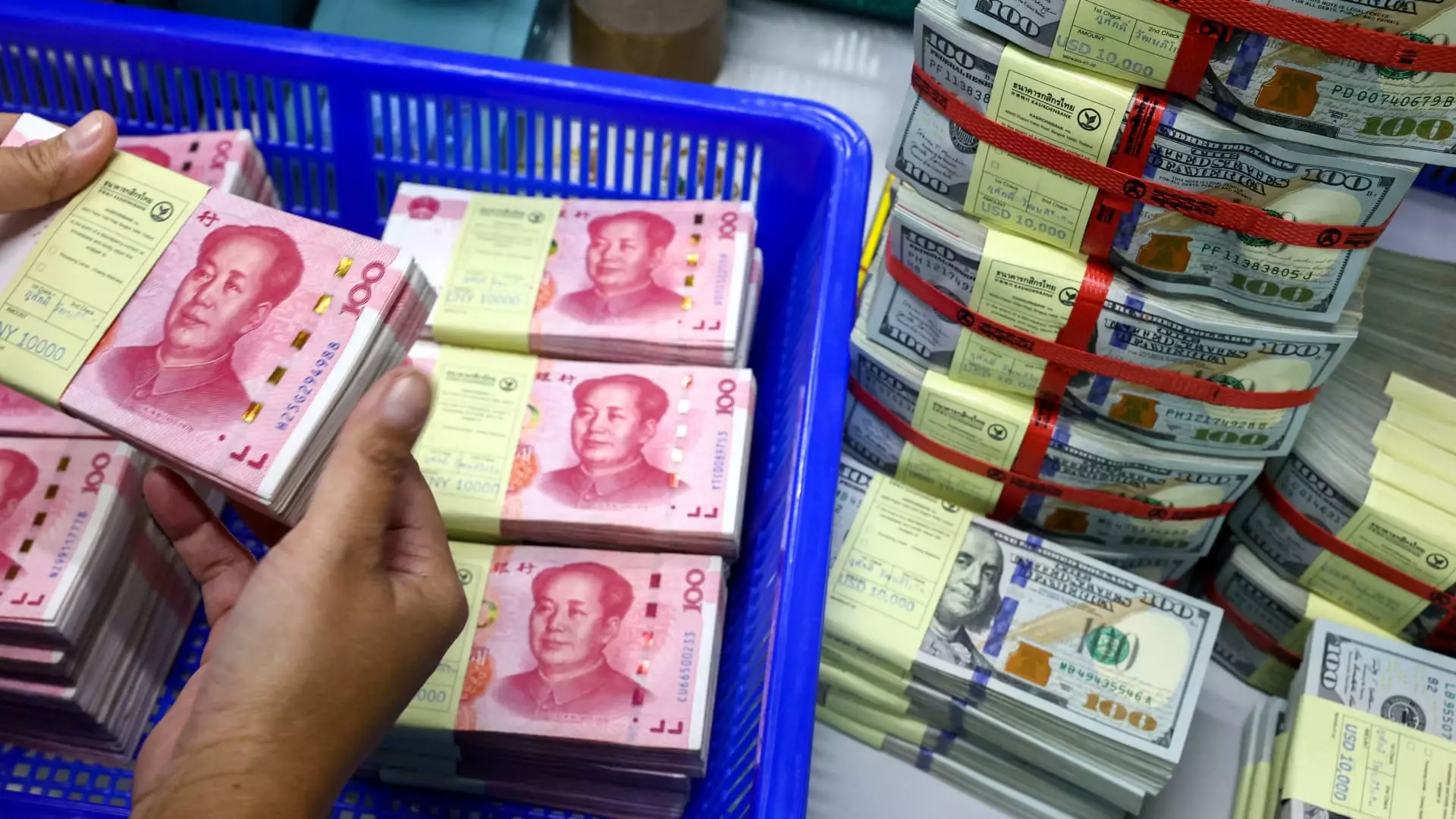In a panel discussion during the World Economic Forum’s “Summer Davos” meeting, Bonnie Chan, the CEO of Hong Kong Exchanges and Clearing Limited, emphasized the need for more diverse applications of the Chinese yuan to elevate its global standing. The Chinese government has long expressed its aspirations to position the yuan as a prominent currency in the international financial domain, challenging the stronghold of the U.S. dollar. The ongoing sanctions imposed on Russia have further accelerated the urgency for countries to seek alternatives to the dollar as a primary currency for trade and wealth storage.
Chan highlighted the importance of offering a broad range of RMB-denominated financial products such as stocks and bonds to cater to the evolving needs of global investors. The shift towards creating a more extensive variety of securities denominated in RMB aims to provide investors worldwide with diverse options to store wealth in the form of the Chinese yuan. This strategic imperative underscores the necessity for expanding the scope of RMB-based financial instruments to facilitate its utilization as a medium of value preservation.
To bolster the internationalization of the yuan, the HKEX introduced the “Dual-Counter” program, enabling investors to trade Hong Kong-listed securities using both Hong Kong dollars and Chinese yuan. This initiative marked a significant milestone in broadening the accessibility of RMB-denominated financial assets to a global investor base. The inclusion of the yuan in the International Monetary Fund’s basket of reserve currencies in 2016 further validated the currency’s growing prominence on the international stage.
Despite Beijing’s concerted efforts to promote the global use of the yuan, Fred Hu, the founder of Primavera Capital, cautioned that the internationalization process might face prolonged timelines. Hu pointed out that China’s financial markets, though substantial, still lag behind those of the U.S. in terms of depth and openness. The restrictions on capital movement and currency convertibility in China present obstacles to the seamless integration of the yuan into the global financial system, hindering its widespread adoption.
The development of a diversified range of Chinese yuan-denominated investment products necessitates a corresponding maturation of the local financial sector. Enhancing the sophistication of the investor base is crucial in fostering confidence and stability in the market. The emphasis on “patient investing,” as observed at the annual Lujiazui Financial Forum in Shanghai, underscores the shift towards long-term value creation over short-term gains. This approach aligns with the need for a more resilient and sustainable financial ecosystem.
Jonathan Krane, the CEO of KraneShares, emphasized the significance of initial public offerings (IPOs) in attracting investors and showcasing China’s technological innovations and industry advancements. While Chinese companies have historically gravitated towards U.S. financial markets for listing opportunities, regulatory constraints have dampened the pace of IPOs in recent years. The revival of IPO activity, especially in Hong Kong, signals a renewed commitment to amplifying market liquidity and investor engagement.
The recent initiatives by Chinese authorities to support IPOs, particularly in Hong Kong, signify a positive outlook for the capital markets. With a notable increase in listing applications and a growing pipeline of potential IPOs, the Hong Kong exchange anticipates a resurgence in market activities. Chan’s optimism regarding the favorable market conditions sets the stage for a wave of new listings and enhanced trading dynamics. As the IPO market gains momentum, the narrative of Chinese innovation and economic growth is poised to captivate global investors.

